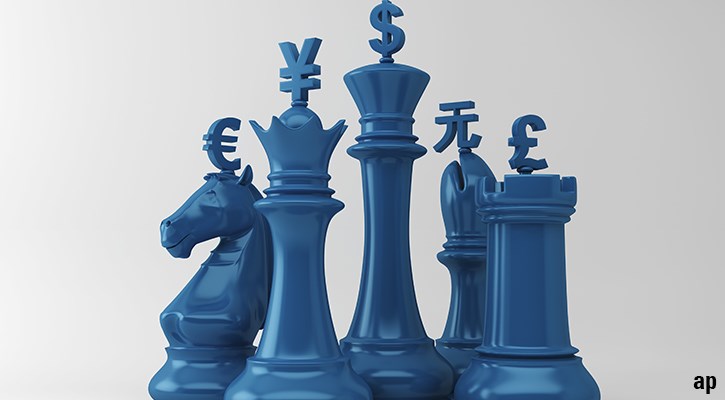Stock markets have been jolted by the Trump victory resulting in increased volatility across the globe. While such episodes always create opportunities for investors who are prepared to think independently and adopt a long-term, valuation-driven approach, they nevertheless contain dangers for investors too. Chief among these is the temptation to react too quickly or with too much confidence in the wake of the outcome of this significant event.

The key question on investors' lips is whether they should buy, sell or hold

Let us be clear, while these are uncharted waters politically, volatility in capital markets is nothing new and on this occasion – as in the past – prudence and patience will win. For this reason, we favour research over reaction and urge other investors to do the same.
The Election Implications
While many commentators are already likening this event to Brexit, we believe this is potentially misguided as they are different in one key way: timeframe. Brexit is likely to be a permanent phenomenon, which could have a significant impact on long term economic growth and therefore be more likely to adversely affect our calculation of “fair” or “intrinsic” value. A Trump presidency is not permanent, which leads itself to sentimental change with less long-term significance.
As long-term investors, we need to appreciate and acknowledge this important difference, if we are to avoid the hype and focus on the real drivers of investment returns. On this note, we must come back to the two variables to successful investing: the current price and the long-term fair value.
Ultimately, the real risk to investors of a Trump government is that it results in an impairment of the fair value of assets. At this stage, our early judgement is that a significant impairment is unlikely due to the political cycle. As we view risk as the permanent loss of capital, as opposed to short-term volatility, a Trump government is unlikely to materially shift our already conservative positioning in this regard. As always, buying assets that have a wide margin of safety is the key to successful investing.
Mispricing Opportunities
The key question on investors’ lips is whether they should buy, sell or hold. To our eye, the knee-jerk price changes within key equity markets are providing us with an opportunity to increase exposure to high conviction assets that have become cheaper and reduce exposure to some ‘defensive’ assets that are likely to become more overvalued. In this sense, turbulent markets can create great opportunities for value investors to purchase assets that will add meaningfully to returns in the future.
As we investigate this, it is important to remember that falls in asset prices often create their own momentum, pushing prices further from fair value in the short term. Investors may therefore get even better opportunities to buy assets in the coming days, weeks and months so should retain some ammunition available to buy more if asset prices fall further.
Said another way, “buying in the dips” can be a profitable exercise providing the investor buys the right assets and those with a margin of safety. We believe a framework to identify these assets is essential, as it may otherwise tempt investors to buy assets that do not have fundamental appeal. In this respect, we continue to believe U.S. equities are expensive relative to fair value.
Further Downside Risks
Of course, the spike in volatility is uncomfortable for many, and the change in the status-quo may have an impact in matters of global trade and domestic confidence. At a geopolitical level, it is easy to build an ugly bear case, and we are mindful that the tabloids will take full advantage of this fear-driven sentiment, they want to sell newspapers after all.
For instance, with the victory to Trump, and a realistic possibility for a “No” vote in the Italian constitutional vote on December 5, we could see further political disharmony. The scaremongers will also be quick to point out the growing popularity of anti-elitist parties in Germany and France, with these countries each facing their own elections in 2017. Morningstar urges investors to keep a level head, and while these issues have substance, investors should look through any exaggeration as political risk is largely unpredictable.




























